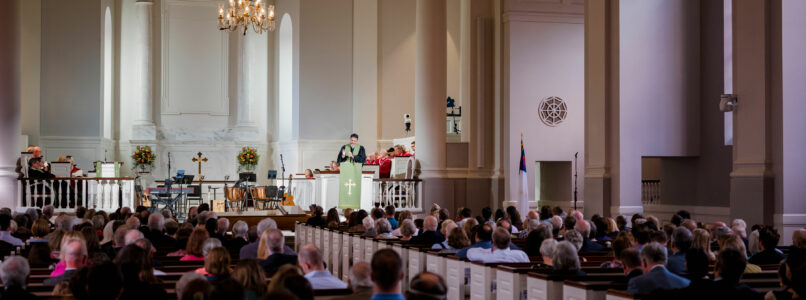As Pastor Curtis taught on anointing this Sunday—and some of you stayed after service to participate in being anointed with oil and prayer—we continue to consider what anointing means to us.
We learned that there are three dictionary definitions of the verb anoint: First, to apply an oily liquid. Secondly, to consecrate or make sacred in a ceremony. And third, to dedicate to the service of God. It prompts Rabbi Harold Kushner to ask this question: “how do we get from smearing liquid to being dedicated to God?” Pastor Curtis said he is convinced that someone who has been trained as a shepherd like David sees the connection because anointing sheep serves three crucial functions:
Oil serves as protection from whatever “bugs” us, like the flies that buzz around sheep – and can even make their way up their nasal cavities.
Oil also prompts peace within the flock, especially when coated on the rams who slam into each other.
Oil brings healing and wholeness to infections and injuries (including when aforementioned rams slam into one another).
Pastoral Resident Jeanmarie Tade opened with a prayer that illustrated how anointing can be asked of God in many areas of our lives; to request his protection, peace, healing, and wholeness for others and. We can repeat elements of this prayer in our own hearts this week as we continue to ponder the message from Sunday.
As Pastor Curtis preaches on Anointing, we think of the anointing of David as leader and king, and we ask for wisdom for all of our leaders city, county, state, national, and international leaders at all levels in our society. Give them wisdom and a desire for peace.
As we think about anointing as hospitality, we ask that you make us welcoming people and hosts, good neighbors, and friendly, approachable people as you are, Loving God.
As we think about anointing as healing, we pray for those who suffer pain and ill health, those who suffer in mind and spirit. May they know the deep peace of Christ. Loving God, we hold in Your healing presence the suffering people of our world in places like Hawaii, Ukraine, parts of Africa, Latin America–really all over this broken world–all the places where people are experiencing hurt and division, including places of hurt and division in our own lives. And we ask that we may know the deep peace of Christ.
Loving God, we hold in your healing presence those who are experiencing grief and loss, who need wisdom in their next steps, those people and situations that seem broken beyond repair. And we pray for those needs that are not known to us but are known by you. May they know the deep peace of Christ. We pray all this in the name of the Father, the Son, and the Holy Spirit.
How profoundly humbling for David to write Psalm 23 at the end of his life. How incredible that King David would say, well, I’m just like one of those helpless, humble little creatures. He was convinced that just as he’d been anointed, he continued to need that anointing that called him into being a king very first place. See, sheep cannot anoint themselves. It’s only the Good Shepherd and the Good Shepherd alone. That Good Shepherd wants to protect us from the flies that buzz around our faces– or the ideas and lies of the world that oppose God’s truth. The Good Shepherd wants to safeguard us from injuring one another. And the shepherd wants to heal our battered, bruised, and broken bodies. Searching for hope, healing, protection, or peace anywhere else will leave us like lost (and bugged) sheep.
If you missed services this week, you may watch the recorded sermon or the whole service <here>. We hope to worship with you <next Sunday> and dine on the fare of God’s Word as we examine “my cup overflows” from Psalm 23.

